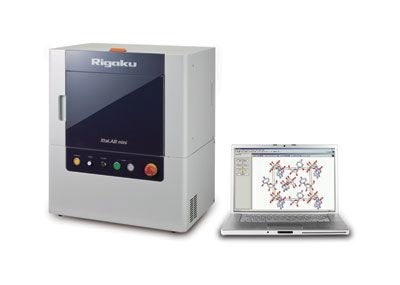The latest edition of Crystallography Times from Rigaku Corporation has been published and is now available on the company’s global website.

Crystallography Times is a monthly electronic newsletter published by Rigaku Oxford Diffraction (ROD) and serving the X-ray analysis community. It concentrates on single crystal X-ray diffraction and presents the latest news and crystallographic research.
“Crystallography in the News” presents current global news on developments in the fields of small molecule and protein X-ray diffraction, highlighting the latest research findings and advancements.
Featured news articles include a report about the creation of the first ever highly porous, mechanically flexible and stretchable inorganic nanomaterial that is both hydrophilic and hydrophobic at the same time. The material has similar properties to a biological cell membrane and it could find use in applications such as sensors, microfluidic devices and microrobotics.
Another news item reports on the use of X-ray crystallography and computer simulation, by researchers at Cardiff University, to get a closer look at how viruses bind cells and cause infection. The new insight could help in the development of drugs and therapies for infections, and further advance the exploitation of viruses for medical treatments.
The Product Spotlight in the current issue features the Rigaku XtaLAB mini II benchtop single crystal X-ray diffractometer for chemical crystallography. The compact XtaLAB mini II system is designed to produce publication-quality 3D structures, thereby enhancing research productivity by offering affordable structure analysis capability without the need to rely on departmental facilities.
Each issue highlights a different laboratory from the global community of X-ray diffraction facilities. This month’s “Lab in the Spotlight” features the Department of Chemistry at the University of Rochester. After careful consideration, the department chose a Rigaku XtaLAB Synergy-S diffraction system to supplement their existing diffractometer. The system, now operational for one year, has enhanced productivity considerably. The number of publishable crystal structures has increased by 180% and that for structures of strictly organic molecules has gone up by 750%. The huge increase of the latter is due in large part to the ability to work with smaller crystals.
A selection of 17 recently published scientific papers, a schedule of upcoming events, a book review and two featured videos are also included. Crystallography Times is published monthly. Readers can subscribe to the newsletter or view the current issue online at https://www.rigaku.com/subscribe.